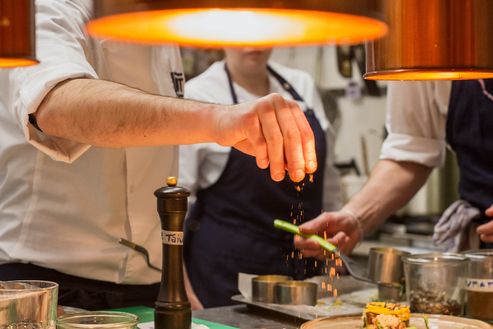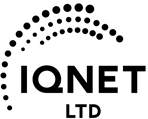Syllabus Unfold syllabus
-
Principles of european haute-cuisine
3 ECTSEuropean Haute cuisine has, and has had, a strong influence on the world's culinary arts. However, and thanks to the mobility brought by globalization, there are other traditional cuisines with which it merges. The objective of this course, since most of the students come from cultural areas other than Europe, is to provide students with a vision of the basics of European cuisine. The course has a theoretical part, but most of the teaching activity will be carried out in the kitchen in a practical way.
-
Healthy cooking
3 ECTSThis subject provides the fundamental knowledge of healthy integrative cooking to be applied transversally throughout the master's degree, since it is intended to provide students with a holistic view of the current cuisine.
-
Introduction to sustainability and circular economy in the kitchen and catering establisments
3 ECTSThis subject is an introduction to sustainability and circular economy, understood from its three dimensions: economic, social and environmental. This introduction lays the theoretical foundations for its transversal application to the rest of the Master’s degree subjects, especially those involving the handling, transformation and use of the product. The subject will also provide students with knowledge of the latest trends in the HORECA sector related to this subject.
-
Executive chef training
6 ECTSThe professional structure of the kitchen field, the profile of the workforces (increasingly multicultural) as well as the dynamics of the catering labor market are crucial aspects that must be addressed so that future chefs know how to manage the staff under their charge. This subject focuses on internal communication in the kitchen, leadership skills, coaching, emotional intelligence management, motivation, mentoring, team building, negotiation and different cutting-edge techniques. This subject provides the necessary techniques and tools that an executive chef needs to manage the kitchen in the following areas: cost management, purchasing management and process management, as well as the fundamental principles of sales through techniques such as menu engineering. This subject also aims to provide students with knowledge of the different software and computer tools applied to the kitchen (excel, app, purchasing, etc.) for the daily management of the kitchen (budgets, food cost sheet, recipes and others).
-
Nutrition and science in the kitchen
3 ECTSThis subject aims to provide students with the principles of human nutrition and dietetics as well as the principles of food biochemistry. Food safety is an essential topic of the subject.
-
Culinary tecniques
6 ECTSThis eminently practical subject explores the different culinary techniques and their evolution. It is closely related to the subject of Products and raw materials. The main techniques studied are: Gratin, oven /roasting baking, steaming, grilling, griddle cooking, sauteing, frying and sweating, boiling, bain-marie, canning, smoking, stewing. Microwave, humid air, vacuum, pressure Extraction of flavors, infusion of essences, distillation, natural dehydration and thematic cuisine. In turn, and as pointed out in the Healthy Cooking course, the techniques used will be focused on the precepts of healthy cooking,
-
Products and raw materials
6 ECTSAreas of study: Physico-chemical transformations of food, organoleptic qualities of raw materials ,products suitable for specific dietary needs, reception, pre-processing and preservation processes ,portioning and cutting processes, product wastage and use of products, Denominations of origin , Gastrobotanic, zero waste cooking.
-
Creativity, innovation and avant-garde cuisine
3 ECTSLatest avant-garde techniques: molecular, nitrogen, low temperature, vacuum, etc. Applied to the latest culinary trends. Cooking is an art and as such must be based on principles that any student must know in order to create and co-create. This subject aims to provide students with the principles of the scientific method as well as different techniques that provide a holistic view of creativity and innovation.
-
Customer experience creation and sensory analysis
3 ECTSThe gastronomic experience is a comprehensive experience for this reason, in this subject the theoretical bases of the experiential world in the culinary field are presented with a broad view that includes extra-culinary aspects, but always linked to gastronomy. Gastrophysics and sensory analysis studies are also included.
-
Sommellerie and food pairing
3 ECTSStudy the relationship between wine and gastronomy in general. This subject also exposes the basic principles of the management of the establishment or point of sale that offers wine products, with emphasis on their supply, conservation and cost management.
-
Technology, facilities and equipment
3 ECTSThe objective of this course is for students to learn and recognize different techniques and technologies applied to the product, from the most traditional, such as ferments, to the most avant-garde and their different applications. At the same time, the principles applicable to the organization of the kitchen will be examined from the point of view of the facilities and the equipment.
-
Design and menu architecture
3 ECTSThe dining experience must be embodied in different elements, from the visible to the invisible, from the tangible to the intangible to meet the high expectations of today's clients. This requires methods and tools that provide the chef with the essential skills and techniques to design attractive menus and presentations that bring aesthetic and experiential value to the menu.
-
Gastromarketing, communication and knowledge transfer
3 ECTSThe objective of this course is for students to acquire basic knowledge of the marketing of the gastronomic business. The syllabus of this course is related to creativity and innovation, so the transfer of knowledge is an essential part of the subject. In addition, this course aims to train students in internal communication techniques as a basis for negotiation and staff motivation as leaders.
-
Kitchen internship
6 ECTSThe curricular kitchen internship is carried out in two phases (both compulsory): a) a period of 3 weeks in the restaurant L'Ermita; b) a period of 4 to 6 months in a haute cuisine restaurant.
-
Mater's Final Project
6 ECTSThe Master's Final Project is the synthesis of the knowledge acquired during the course. In the Master's Degree in Culinary Arts, Innovation and Kitchen Management, it is materialized through the design and execution of a haute cuisine gastronomic menu. In this project, in addition to designing and executing the proposed gastronomic offer, the management techniques of the gastronomic field must be developed to demonstrate its economic viability and sustainability from the three fundamental pillars: economic, environmental and social.
Qualification
* Does not include the fee for the issuing of the diploma
Note: those who do not have a previous university degree will be entitled to receive, under the same conditions, a certificate of attendance awarded by the Fundació UdG: Innovació i Formació







